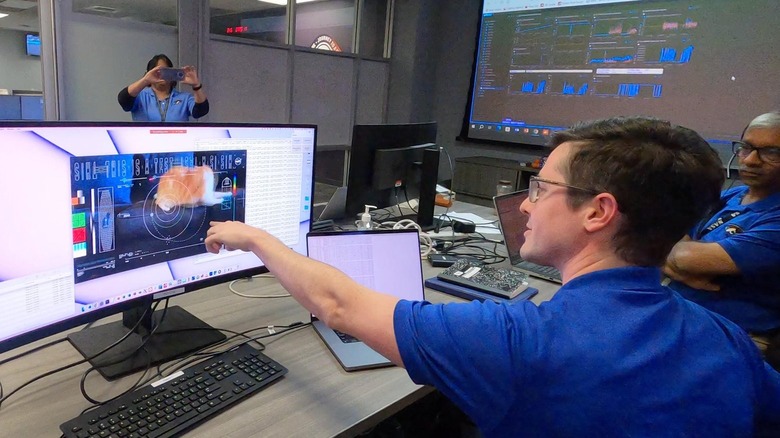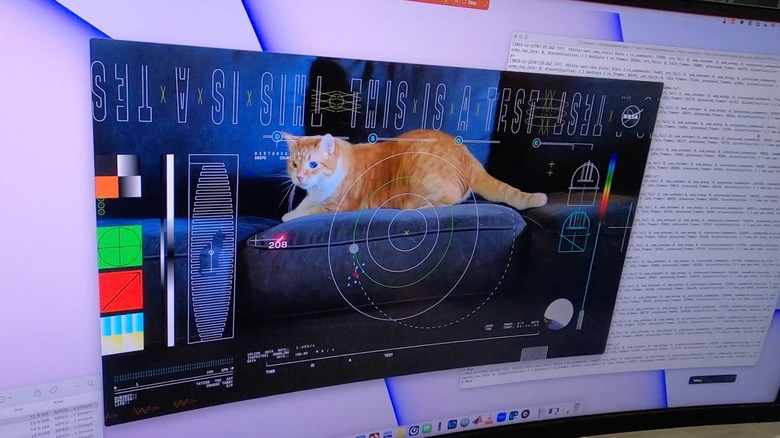How A Cat Became The Star Of The First Ultra HD Video Sent From Space
There are so many cat videos on the internet that it was only a matter of time before one was sent from deep in space. According to NASA, they did just that. Deep Space Optical Communications, working from the Hale Telescope in San Diego, California, received an ultra-high-definition video from the transceiver aboard the Psyche spacecraft, 19 million miles away. It starred an orange tabby cat named Taters.
The video was primarily a 15-second test of the systems involved. Above all, it tested Deep Space Optical Communications (DSOC), a new form of laser-based communication capable of sending more information more quickly than conventional radio. The video was uploaded to Psyche before its launch on October 13, 2023, then beamed back to Earth via encoded near-infrared laser. Taters belongs to an employee of NASA's Jet Propulsion Laboratory, which, when not busy redefining NASA's approach to spacecraft with revolutionary spaceplanes or building the robots that could deliver Earth's first samples of Mars, apparently takes adorable videos of its pets. While Taters played with a laser pointer, graphical overlays on the video showed Psyche's orbital path, the dome of the Hale Telescope that received the signal, and technical information about the data and how it was transmitted. Just to cover all the bases, the transmission also provided information on Taters, including heart rate, color, and breed.
What this means for future missions
While the video has all the requisite cuteness of a regular cat video, the rate in which the video traveled is the main achievement according to NASA. The test showed that DSOC and optical communications in general can transmit large amounts of data, fast. The 15-second test video took 101 seconds to reach Earth, traveling at the system's maximum bit rate of 267 megabits per second (Mbps).
"Despite transmitting from millions of miles away, it was able to send the video faster than most broadband internet connections," said Ryan Rogalin, the project's receiver electronics lead at JPL. He went on to note that it actually took longer to send the video from Palomar to JPL over the internet than it took Psyche to send the video to Palomar from outer space. Taters' video won't be the last bit of animal-themed space science for JPL, either. The lab has also been working on a slithering, swimming robot snake to help NASA explore the surface of uncharted worlds.

